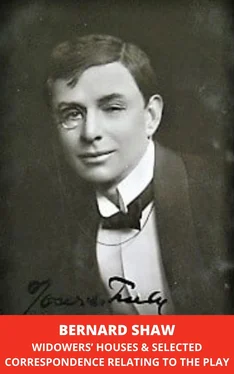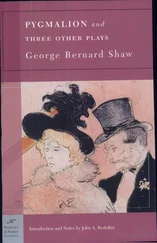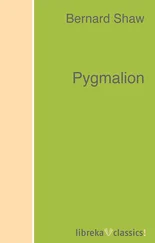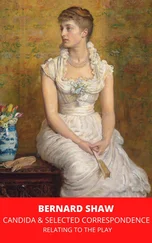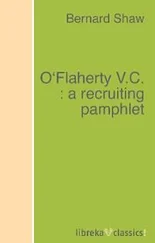Corrected proofs of Widowers’ Houses . As it was a very fine day I went off to FE [Florence Emery née Farr], who got some purchase and came off with me to Kew and then on the water to Richmond. We called for [C. Duncan] Lewis but he was out. We had a meal at Ferrari’s and then took a walk in the park. Then back to killing Rd. I came back by the 22.37 train
53/ Bernard Shaw’s diary entry for 12th March 1893
SUNDAY Lecture on “The Evolution of Socialism” at the Tottenham Radical Club (H. Bond Holding, 7 Lynwood Villas, Wood Green N.). Train Liverpool St to Bruce Grove. 19.25; return 21.57.
[Went to] Tottenham. Finished and sent off appendix to Widowers’ Houses —last of the copy. Wrote notes for World on Spitzer catalogue and, finished World article. Went to the Grosvenor with [Hubert] Morgan-Browne in the evening.
54/ Bernard Shaw’s diary entry for 21st March 1893
Fabian Publishing Committee. 276 Strand. 17. Sub-Committee Joint Socialist, at Morris’s, at 20. Trinity College. Mandeville Place. Students’ Chamber Concert and Conversazione. 20 to 23.
Slept by snatches, disturbed by the hammering of the workmen at the drains, until past 11; so that I was abominably late. Again read over the preface to Widowers’ Houses —fortunately, as I found one or two stupid oversights in it. After dinner called for [William] Archer, but he was in the country. I then, having an hour to kill before the Publishing Committee, called on the Carrs’ [Herbert Wildon Carr and Geraldine Carr née Spooner] found Geraldine there. She has taken to painting at the Slade School. Carr came in afterwards. After the Committee I went out to Hammersmith with [May] Sparling and had “tea” at the Terrace. Before dinner I had to go to Bloomsbury to the lavatory there, as the one at Portland Rd. was out of order.
Lavatory, Bloomsbury 1d Papers 1d Dinner 1/1 Train Temple to Rav[enscour]t Pk 6d Hammer-
smith to Portland Rd 6d
55/ Bernard Shaw’s diary entry for 22nd March 1893
Mrs Morgan-Brown’s At-Home. 46 Ridgmount Gardens. 16-19. Boat Race. 15. Sparlings’ [Henry Halliday Sparling and Mrs Sparling née May Morris]. Meet [Joseph Francis] Oakeshott at the Wheatsheaf at 14 and walk out together. Ridley Art Club; see Saturday last.
Drafted advert of Independent Theatre for Widowers’ Houses. Played through some of Verdi’s Falstaff. The Salts [Henry Stephens Salt and Mrs Salt née Catherine (Kate) Joynes] were at the Wheatsheaf; and Mrs Salt walked with me to the Circus, Salt coming behind with Oakeshott. They left us at the Circus. Oakeshott and I walked out to Hammersmith. We met Bertha and Mabel Newcombe on the way and put them into a cab. After the Race I went into Walkers’ [Emery Walker and his wife Mary Grace Walker née Jones] for a while. Then I returned to Sparlings’, where there were still a good many people. Eventually all left except the Steffens [Gustav Steffen and Anna Oscara Steffen née von Sydow] and Miss [Isobel E.] Priestley, who made an elaborate examination of my hand and described my character. We did some playing later in the evening. I came back with Miss Priestley by the 23.5 train, and saw her home to Woburn Place.
Papers 1d Lavatory ld Dinner 1/3 Tip to cab tout 6d Train Ravenscourt Park to Gower St 9d
56/ Bernard Shaw’s diary entry for 23rd March 1893
Last day for nominations for Fabian Executive. Philharmonic Concert. St. James’s Hall. 20. Fabian Publishing Committee. 276 Strand. 17. Meet Miss Leeds (Miss Priestley’s friend) at the Fabian office at 16.45.
Began World article. Returned here after dinner to change my clothes and wash. After the Committee [Sydney] Olivier came with me to the Orange Grove. I left the concert at the end of the first part. When I got home I read the last proofs of Widowers’ Houses and sent them off. Also began reading Archer’s article “The Mausoleum of Ibsen” in proof and MS.
Lavatory 1d Hair cut &c 1/– Papers 1d Dinner 3d “Tea” at Orange Grove 1/6
57/ To William Archer
24th March 1893
I leave the article [ The Mausoleum of Ibsen ], which seems to me good enough in spite of its inhumanity, except on one point. The explanation of the success of the translations on the stage is that in middle class social and political life Norway is the microcosm and England is the macrocosm. As I have often told you, if you would only join the local caucus, you would see at once that An Enemy of the People [by Henrik Johan Ibsen] comes home to Holborn as closely as A Doll’s House [by Henrik Johan Ibsen] comes home to Brixton and Holloway, which are just as narrow and provincial as Norway. Ninetyfive per cent of an Ibsen play is as true of any English town as it is of Christiania; and the odd five per cent is not sufficient to make the performance in the least puzzling. Probably this is less true of France; but modern commercialism levels all nations down to the same bourgeois life, and raises the same problems for realist playwrights, though not for romantic ones. This is what destroys the whole parallel between [Jean-Baptiste Poquelin alias] Molière and Co. (as far as translation is concerned) and Ibsen; and I think you owe it to your reputation to shew that the difference is within the sphere of your consciousness in the article. Even apart from realist plays the drama is more international than you represent it; for most of the adaptations—especially the most successful ones—are very close translations. It is the ultraadapted ones that fail.
The note about the theatres on page 76 of the MS had better come out, because the description of the Novelty [Theatre] is, I think distinctly libellous, and the other two instances are more of the nature of apologies.
The tone of the article generally is one of devilish malignity towards the unfortunate [critic Clement] Scott and the rest. They may deserve it; but when Widowers’ Houses celebrates its six hundredth night, Scott will have his revenge.
I leave you the two sheets of W. H. [ Widowers’ Houses ] which were missing from the set of proofs I sent you before. There are two points to admire: first, the ingenuity with which I have secured a preface by William Archer without running any of the risks which destroyed poor [Henry Arthur] Jones; and second, the sublime preface by [Jacob Thomas] Grein, with its adroit allusion to the play ‘setting the machinery of public opinion in motion and SUPPLYING BRICKS’ &c. The proof of the final sheet is unique, and will be readily saleable for ten guineas in view of the champion misprint which has produced the sentence beginning on the last line of page 121.
I make no apology for lifting your copy out of the World , as I confined myself strictly to that part which is clearly made out of my own flesh and blood.
Please let me know whether you are going to publish [a translation from the Danish of the play written by Edvard Brandes] A Visit in the series (or anything else) as I see I shall have to do the whole volume, advertisements and all, myself.
GBS
Конец ознакомительного фрагмента.
Текст предоставлен ООО «ЛитРес».
Прочитайте эту книгу целиком, купив полную легальную версию на ЛитРес.
Безопасно оплатить книгу можно банковской картой Visa, MasterCard, Maestro, со счета мобильного телефона, с платежного терминала, в салоне МТС или Связной, через PayPal, WebMoney, Яндекс.Деньги, QIWI Кошелек, бонусными картами или другим удобным Вам способом.
